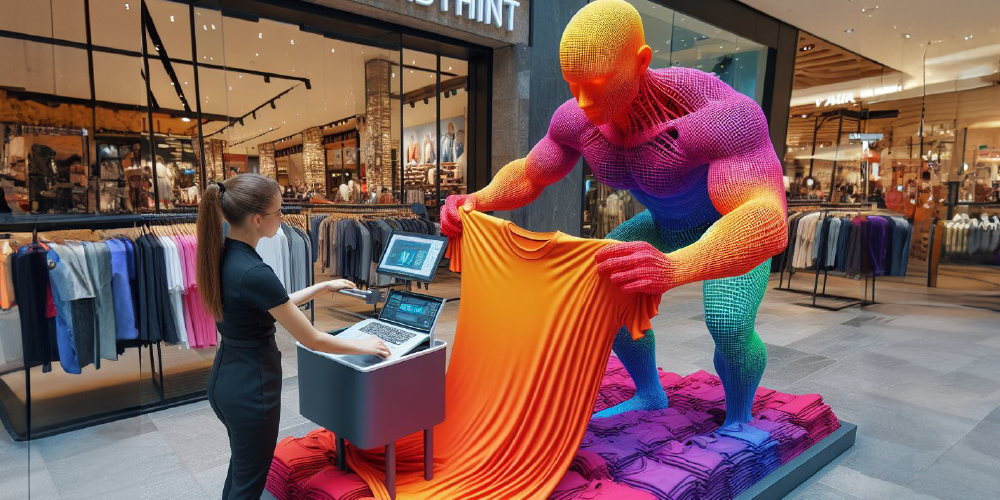In today’s digital age, where attention spans are shorter than ever, video has become the go-to medium for businesses to showcase their products and services. With the rise of eCommerce, product videos have become an essential part of marketing strategies. But with technological advancements, video production has come a long way. Now we have videos with AI, AI avatar videos, and text-to-speech videos that are revolutionizing how we create and consume content.
AI-enhanced videos have opened new possibilities for content creators and video production professionals. From automated editing to color correction, voice recognition, content analysis, object detection, and tracking, AI has transformed the video industry, making it more efficient, accessible, and visually compelling.
AI in Video Making
AI has been transforming industries across the board, and video production is no exception. With AI, video creators can now automate previously manual tasks, such as video editing, voiceovers, and animation. It saves time and resources and ensures that the end product is high quality.
AI-powered video creation tools use machine learning algorithms to analyze the content and generate videos based on the user’s inputs. For instance, a user can input a script, and the tool will create a video with visuals and text-to-speech based on the script. This function benefits eCommerce product videos, where businesses can create videos showcasing their products in action without hiring a production team.
Here are some ways in which AI can enhance video: Video editing: AI-powered software can analyze video content and automate editing. It can identify key moments, such as highlights or important events, and stitch together footage to create a compelling video.
Color correction: AI algorithms can automatically adjust a video’s color balance, saturation, and contrast to create a more visually appealing look. It saves time and effort for video editors and ensures that the final product looks professional.
Voice and speech recognition: AI can transcribe speech and automatically add subtitles to a video, making it accessible to a broader audience. Additionally, AI can analyze the tone and sentiment of a speaker and automatically adjust the video’s pacing and music to create a more engaging experience.
Content analysis: AI can analyze the content of a video and automatically add relevant tags and metadata to make it more searchable and discoverable. It can help improve the video’s SEO and increase its visibility on search engines.
Object detection and tracking: AI can track objects and people in a video, allowing for the creation of special effects, such as adding or removing objects or changing the background.
What are AI Avatar Videos?
AI avatar videos are another exciting development in the world of video production. These videos use AI-powered avatars to create lifelike animations in various settings. For instance, businesses can use AI avatar videos to create virtual product demos or explainer videos that are engaging and informative.
What are Text-to-Speech Videos?
Text-to-speech videos are another example of how AI changes our content creation. With text-to-speech, businesses can convert written content into spoken words, making it easier for users to consume the information. This function is handy for eCommerce videos, where companies can showcase their products and provide information about their features and benefits.
Tools for Creating Videos with AI
There are several tools available that use AI to create videos. Some of the popular ones include:
- Synthesia: Synthesia is an AI-powered video creation platform that allows businesses to create videos using text-to-speech and AI avatars. The tool uses natural language processing to generate lifelike animations and voiceovers, making it ideal for eCommerce product videos.
- Lumen5: Lumen5 is another popular AI-powered video creation tool that uses machine learning to analyze written content and generate videos. The device is beneficial for creating social media videos that are short, snappy, and engaging.
- Animoto: Animoto is a cloud-based video creation platform that uses AI to create professional-looking videos. The tool offers a range of templates and customization options, making it ideal for businesses of all sizes.
- Wibbitz: Wibbitz is an AI-powered video creation platform that helps you create professional-quality videos quickly and easily. With Wibbitz, you can create videos for social media, marketing campaigns, news updates, and more. The platform uses natural language processing (NLP) and machine learning algorithms to convert text into video content. Type in your text, and Wibbitz will do the rest. Wibbitz also offers a library of video templates so you can get started immediately.
- Animaker: Animaker is an online video creation tool that lets you create animated videos with the help of AI. With Animaker, you can create videos for business, education, or personal use. The platform uses machine learning algorithms to automate the animation process, making it easy for anyone to create professional-looking videos. Animaker offers a wide variety of templates, characters, and backgrounds and a drag-and-drop interface that makes it easy to create custom videos.
6. Adobe Premiere Pro: Adobe Premiere Pro is a popular video editing tool offering various AI-powered features. The platform uses machine learning algorithms to automate color grading, audio syncing, and clip selection tasks. With Adobe Premiere Pro, you can create videos for social media, marketing campaigns, or any other purpose. The platform also offers a range of advanced features, such as motion graphics and visual effects, that
can help you create stunning videos.
7. Vidnami: Vidnami is a cloud-based video creation platform that uses AI to automate video creation. With Vidnami, you can create videos for business, education, or personal use. The platform offers a range of templates and a drag-and-drop interface that makes it easy to create custom videos. Vidnami also uses machine learning algorithms to select your video’s best images and clips automatically.
Will AI replace video editing?
While AI technology is constantly improving and can automate some tasks in video editing, it is unlikely that AI will ultimately replace video editors soon. Video editing involves various creative and technical skills, including selecting footage, editing clips, adding visual effects, sound mixing, color grading, and more. While AI algorithms can perform some of these tasks, they cannot replace a human editor’s intuition, creativity, and decision-making skills. Moreover, video editing involves a lot of subjective choices that depend on the preferences and goals of the project, the audience, and the platform. AI algorithms can analyze data and patterns but fail to understand the entire context, meaning, and emotions behind the content. AI can assist video editors by automating repetitive or time-consuming tasks, such as tagging footage, suggesting edits, and optimizing workflows. AI can also enhance video editing by offering new tools and techniques, such as deep fakes, motion graphics, and virtual reality. Overall, the relationship between AI and video editing is complementary rather than competitive. AI can augment the skills and creativity of human editors, but it cannot replace them.
Conclusion
AI-powered videos are transforming the way businesses create and consume video content. With the help of AI, businesses can start engaging and informative videos that showcase their products and services. The tools mentioned above are just a few examples of the many available options for creating videos with AI. As technology evolves, we expect to see even more exciting developments in video production.





